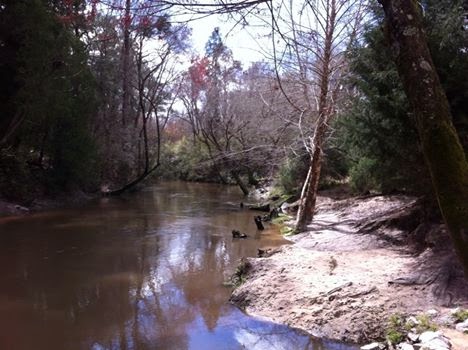Survival?
Sure.
I suppose, when it comes right
down to it, you can say these are survival skills that can get you through an
unexpected bad turn of things. Things do happen. Unexpected bad turns do come
around. There is a lot of wisdom in planning for unexpected scenarios and there
are a lot of scenarios worth investing some thought in.
Honestly. You never really know
what is around the next turn in the proverbial road.
I recently read an article about
a family vacation that went bad. The folks decided to go for a drive out west
and see some country.
Off they went in the car, picking
up Granny on the way. One stop was a ghost town up in the high elevations. Up
the mountain. Unpaved road. Wrong turn. Unexpected blizzard that dropped three
feet of snow and thickened the mercury reading to below freezing.
A hunter found the dad trying to
walk out for help. Had it not been for the old woman taking along a few
blankets and some snacks it would have been a really bad adventure for them.
The truth of the matter is that
most of us just follow the road without thinking about what might be around the
next bend. Maybe nothing. But, then again, it might be something that will test
us to our limits and then some.
It is our modern generation that
thinks along survival lines. A couple
centuries ago these were common fare life
lines. A lot can be lost in a hundred years. By the late 1800’s and early
1900’s … the era of time when Nessmuk and Kephart were walking the woods … a
lot of the life lines had been forgotten. Kephart considered that not one in a
thousand city men could go it alone
in the woods.
It has been another hundred years
since the time of Nessmuk and Kephart. How much more of the life lines has been
lost in a century … a century where we are all now, of a sort, city men?
Is Kephart’s one in a thousand now one in
ten thousand for the present generation and one in one hundred thousand for the generation fanny-warming the
seats in public schools? I do not know what the numbers are but I cannot help
but to wonder about the obvious growing generational disparity.
There is a rewarding sense of
accomplishment in acquiring skills and reattaching life lines. The knowing and
the ability to perform these tasks offer stability and peace of mind. I think,
and this is just my personal position on the matter, if our only reason for
learning and performing these skills is to survive
something unforeseen that may befall
us in the future … we are shorting ourselves.
Learning, acquiring gear, and
performing these life line tasks is every bit about getting back into, reconnecting with, and
enjoying the natural surrounding environment … whether we do it with modern
gear or with facsimiles of articles from the 17th Century.

No comments:
Post a Comment